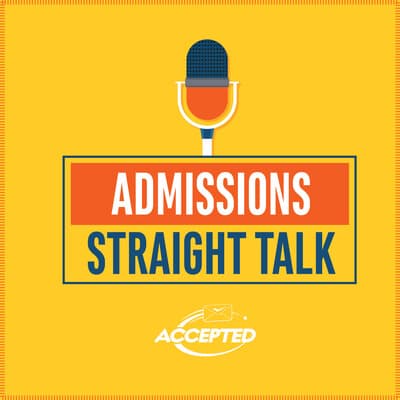Education
Zach Donato, who will be starting medical school later this year, reflects on his application experience and his expectations for med school [Show summary] Zach Donato, who is preparing to start medical school, shares his perspective on getting accepted as a reapplicant, staying on top of the application process, and mentally preparing for med school. An accepted incoming medical student shares why, in admissions, "the straight path is not always the best one." [Show notes] Zachary Donato is happily anticipating the start of medical school. He graduated from Emory University in 2018 with a major in neuroscience and behavioral biology. He is currently pursuing a masters in biomedical science from the University of Miami, and this summer, he will start medical school. Can you tell us a little bit about yourself and your background? [1:56] I was born in a small town in Virginia called Roanoke. I lived there until I was about five, then we ended up moving to Denver, Colorado. So I was raised very outdoorsy. I was hiking all the time, biking, running, you name it—outdoor activity, I probably tried it. So I grew up in Colorado. Then I went to Emory undergrad, like you said, and pursued my degree in neuroscience there. How did you decide to pursue a career in medicine? [2:30] The main thing was during my high school career, my AP biology class. So kind of up until that point I was all over the place. I was taking business classes and just trying to envision myself doing different things. I would say my teacher, my AP biology teacher, really inspired me and ignited a passion for me to pursue a scientific career. Nothing got me as excited as when I was doing the labs in biology or learning new concepts. It felt like nothing I’ve ever felt before. So I knew I wanted a career in the sciences and that kind of led me down the path of, “Okay, maybe medicine is something I should consider.” How about clinical medicine? Where did you get the appetite for that? [3:16] That next summer, I ended up volunteering in the post-anesthesia recovery unit at a hospital in Denver. I think as I started kind of getting familiar with patient care and listening to patients’ stories, that really excited me in a way that I was intrigued with. I realized that I could do a lot of little things to make a patient’s experience much better. I kind of wanted to keep doing that, so I kept exploring the medical field. Your 2019/2020 application wasn’t your first medical school application—you applied for 2018/2019 first. What do you think contributed to your rejection the first time around? [4:02] I think one of the things that applicants really struggle with is getting the whole picture together, right? So you have your letters of rec, you have your personal statement, you have your activities, but how can you put that into one really nice picture of yourself? So I think first of all, my letters of rec, I kind of rushed to get them. A lot of times students struggle getting close to people, especially with undergrad. You have so many people in your classes. I really struggled doing that. I think my personal statement really didn't reflect who I was and my journey. I told a lot of nice things, but it wasn't about my story. I think that's really where I struggled the first time. What do you think you did differently the second time that made the difference? [4:44] Preparation. You have to be ready for everything the day that AMCAS application comes out. I submitted on the first day. Getting the personal statement to be my story, and then having the activities backing up what I say about my story. Then getting close with the faculty at UM, really developing those relationships, and doing a lot to show my commitment to the medical field. What was the idea behind pursuing a masters as a postbac? [5:18] I kind of needed to reinvent myself a little bit. In college, I struggled. My GPA wasn’t great. I was a very, honestly,

